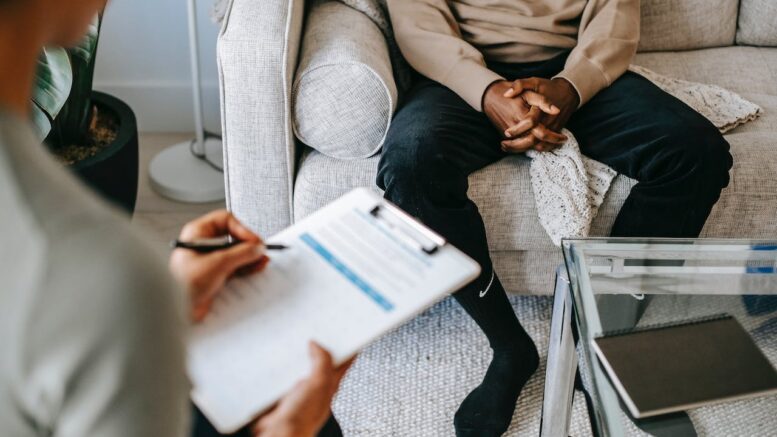Taking the step to seek professional help for your mental health is a courageous decision. You’ve recognized the importance of your emotional well-being and are committed to making a positive change.
Psychotherapy clinics provide a safe and confidential space for individuals like you to address emotional challenges and develop healthy coping mechanisms. While that first visit can feel nerve-wracking, it’s also the beginning of a journey towards a healthier, happier you.
Read on to discover what to expect during your initial session at a psychotherapy clinic and gain the knowledge and confidence to make the most of this vital step.
The Paperwork Process
A psychotherapy clinic will ask you to complete paperwork before your initial appointment.
This typically includes the following:
- Intake forms: These comprehensive forms collect details about you, your medical history, and the reasons you’re seeking therapy. Be thorough and honest in your responses, as this information provides a foundation for your therapist to understand your unique needs and concerns.
- Insurance information: If you plan to use insurance to cover your therapy sessions, bring your insurance card and any necessary paperwork from your provider. The clinic staff will handle the insurance verification process and explain any out-of-pocket costs.
- Consent forms: These forms outline the therapist’s confidentiality practices and your rights as a client. It’s important to carefully review and understand these forms before signing. Feel free to ask your therapist any questions about confidentiality or the therapy process.
Completing this paperwork helps the clinic understand your background and any relevant medical concerns.
The Initial Session: Getting Acquainted
The first session at a psychotherapy clinic is all about establishing rapport and laying the groundwork for future sessions.
Here’s what you can expect:
- Meet and greet: Your therapist will introduce themself and create a welcoming environment. This initial interaction helps set the tone for the session.
- Your story: The therapist will ask about your background, current concerns, and what motivated you to seek therapy. Be honest and open about your experiences; the more information you share, the better your therapist can understand your needs.
- Goals and expectations: Discuss your goals for therapy. What do you hope to achieve through these sessions? The therapist will also explain their approach to treatment and answer any questions you may have.
This session is an opportunity to express your concerns and establish a foundation for your therapy journey.
Collaborative Planning: Charting Your Course
Following the initial assessment, your therapist will work with you to develop a personalized treatment plan. This plan will outline the specific therapeutic techniques that will be used to address your concerns.
Here are some aspects of this collaborative process:
- Identifying therapeutic techniques: There are various psychotherapy approaches, such as cognitive-behavioral therapy (CBT) or interpersonal therapy (IPT). Your therapist will discuss which techniques might be most beneficial for you based on your unique needs.
- Setting realistic goals: Therapy is a journey, not a quick fix. You and your therapist will establish achievable goals that will track your progress and keep you motivated.
- Frequency and duration: Discuss how often you’ll meet with your therapist and the estimated duration of treatment. This will depend on your specific needs and the complexity of your concerns.
Collaborative planning ensures that your therapy is tailored to your individual needs, helping you achieve your mental health goals.
Building A Therapeutic Alliance
The success of therapy hinges on the therapeutic alliance, the bond of trust and respect that develops between you and your therapist.
Here’s how to foster this crucial element:
- Open communication: Be honest and transparent with your therapist about your thoughts, feelings, and experiences. The more open you are, the better your therapist can understand and support you.
- Asking questions: Don’t hesitate to ask questions about anything you don’t understand or feel unsure about. This includes the therapist’s approach, treatment plan, or anything related to the therapy process.
- Finding the right fit: Feeling comfortable and safe with your therapist is essential. If, after a few sessions, you don’t feel a strong connection, discuss this with your therapist or seek a referral for another therapist who might be a better fit for you.
Fostering a strong therapeutic alliance is vital to a successful therapy experience.
Active Participation And Homework
Therapy isn’t just about what happens during sessions. Active participation and homework are essential components of effective therapy.
Below are some aspects of this involvement:
- Engaging in sessions: Actively engage in discussions and exercises during your sessions. Your input is crucial for the therapeutic process.
- Homework assignments: Therapists often give tasks to complete between sessions to reinforce what was discussed. These assignments help solidify new skills and insights.
- Feedback and adjustment: Provide feedback to your therapist to adjust your treatment plan as necessary. Your therapist can make changes based on your responses and progress.
Active participation enhances the therapy experience and helps you achieve your goals more effectively.
Final Thoughts
Taking charge of your mental health is a commendable decision, and your first visit to a psychotherapy clinic marks the beginning of a positive journey. Remember, therapy is a two-way street. Your active participation and open communication with your therapist are crucial to unlocking your full potential for growth and achieving lasting emotional well-being.
